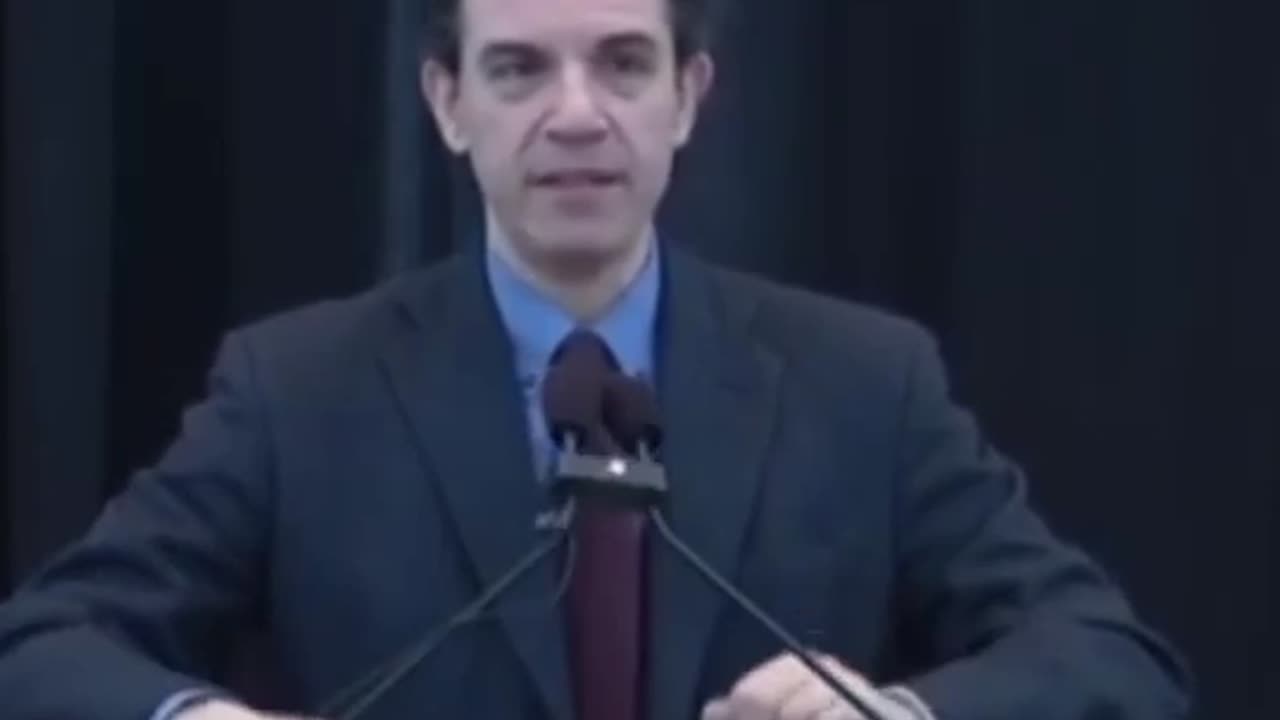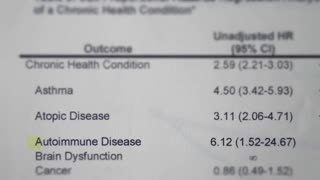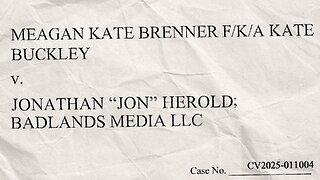Premium Only Content

Dr. Daniel Neides Apology Exposes Systemic Failures in Vaccine Education & Practice
Dr. Daniel Neides Public Apology Exposes Systemic Failures in Vaccine Education & Practice
In a raw and emotional account, Dr. Daniel Neides, an educator affiliated with the Cleveland Clinic and Case Western Reserve University, issued a stunning public apology to his former patients. His confession reveals profound, systemic gaps in how the medical establishment handles vaccines, moving beyond anecdotal fears to indict the very structure of medical training and practice.
His key points are a damning indictment:
1. The Educational Vacuum: Medical students are not educated on vaccine contents, safety data, or informed consent. They are taught to memorize the schedule, not to critically understand the science or the history, including the 1986 law that removed liability from pharmaceutical companies for vaccine injuries.
2. The Hidden Payouts: The medical community openly discusses the schedule but remains silent on the nearly $4 BILLION paid out to vaccine-injured patients since 1992 through the Vaccine Injury Compensation Program—a fact he was never taught.
3. Financial Conflicts & Patient Dismissal: He highlights the ethical crisis of potential payments to providers for high vaccination rates. Worse, patients who question vaccine safety or choose to delay are often "terminated" from their medical practices—a practice he calls "deplorable and disgusting."
4. Coercion Over Consent: The forcing of flu vaccines under threat of job loss, even for employees months from retirement, underscores a culture of coercion that strips individuals of bodily autonomy.
5. The Informed Consent Farce: Dr. Neides admits he was part of the problem. He would administer vaccines first and provide the safety information sheet afterward. He was completely unaware the sheets contained information about the injury compensation program—a critical failure in his duty of care.
6. The Gaslighting of the Injured: If a patient reports a penicillin allergy, it is immediately recorded and respected. But if a patient or parent reports a potential vaccine adverse event, they are met with skepticism and shame. This refusal to believe patients erodes the very foundation of the patient-doctor relationship.
This isn't an anti-vaccine rant; it is a pro-transparency, pro-ethics, and pro-patient plea from within the system. It demands an answer: Why is robust, balanced education on vaccines—including their risks and the legal framework protecting their manufacturers—so conspicuously absent from medical training?
The conversation must shift from blind enforcement to open, honest, and scientifically rigorous dialogue. The trust of the public depends on it.
-
 4:18
4:18
573F4N0
5 days agoDr. Marcus Zervos vaccine study shows the danger of vaccines.
431 -
 12:21
12:21
itsSeanDaniel
1 day agoAOC and Bernie MELTDOWN after CNN Host CALLS THEM OUT
1416 -
 1:03:37
1:03:37
Dialogue works
2 days ago $0.66 earnedCol. Larry Wilkerson: The Iran War Threat RETURNS — But Iran Has Transformed into a Military Giant!
9747 -
 2:10:32
2:10:32
MG Show
17 hours agoNothing Happening?: Bolton Indicted; Pandoras Box REX 84' AND F.E.M.A.
5.2K10 -
 1:42:58
1:42:58
Badlands Media
1 day agoMeagan Kate Brenner v. Badlands Media LLC
86.8K278 -
 44:40
44:40
Inverted World Live
13 hours agoRex Jones Discusses the Gaza Ceasefire, Big Tech, and Having Alex Jones as a Father
48K7 -
 2:57:02
2:57:02
VapinGamers
8 hours ago $3.46 earnedAltheia - The Wrath of Aferi - Game Review and Playthru - !rumbot !music
22.2K2 -
 2:06:32
2:06:32
TimcastIRL
10 hours agoLeftist NO KINGS Protest Begins, Antifa EMBEDS, Riots & Violence FEARED Nationwide | Timcast IRL
208K177 -
 2:50:31
2:50:31
TheSaltyCracker
10 hours agoHail to the King ReeEEStream 10-17-25
92.1K195 -
 56:04
56:04
Man in America
17 hours agoGold’s OMINOUS Warning: A Global Monetary Reset That’ll BLINDSIDE Americans
58.6K22